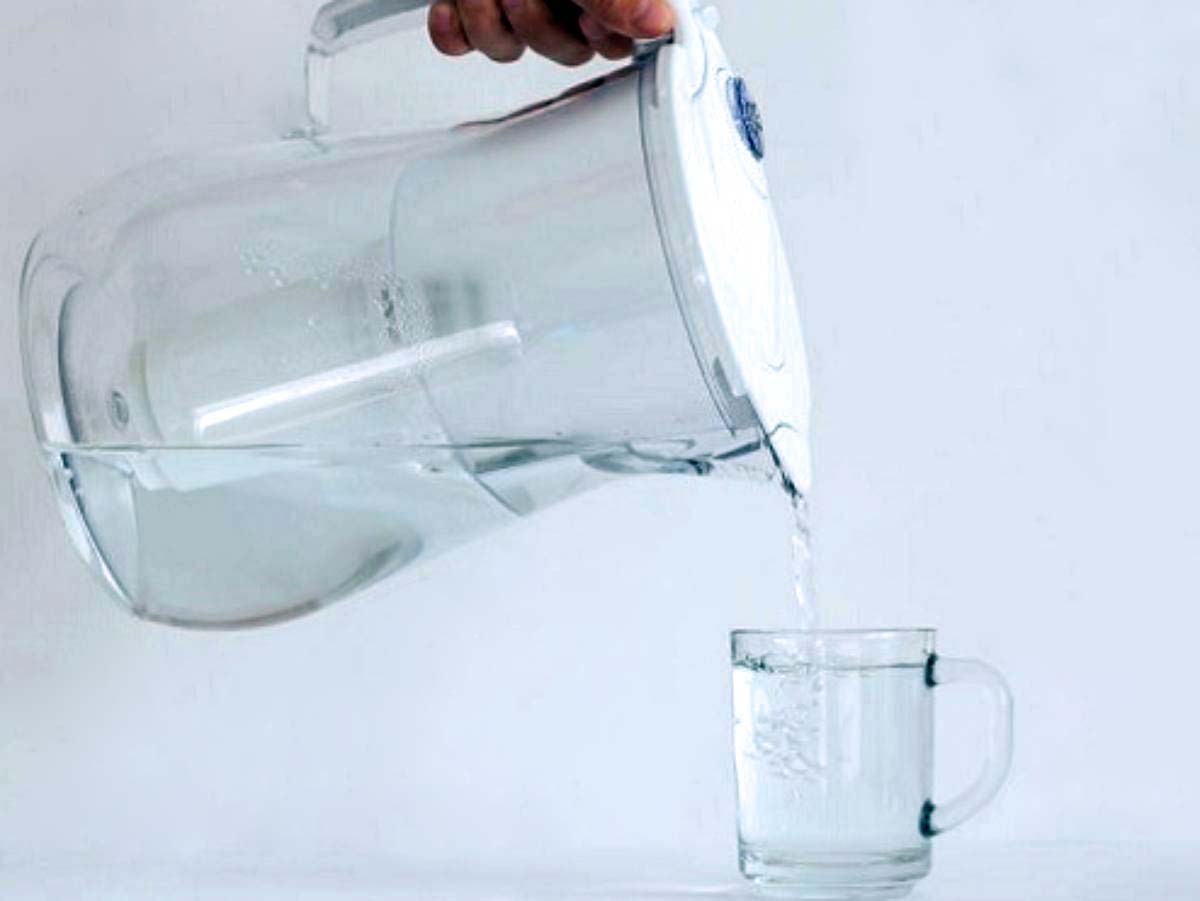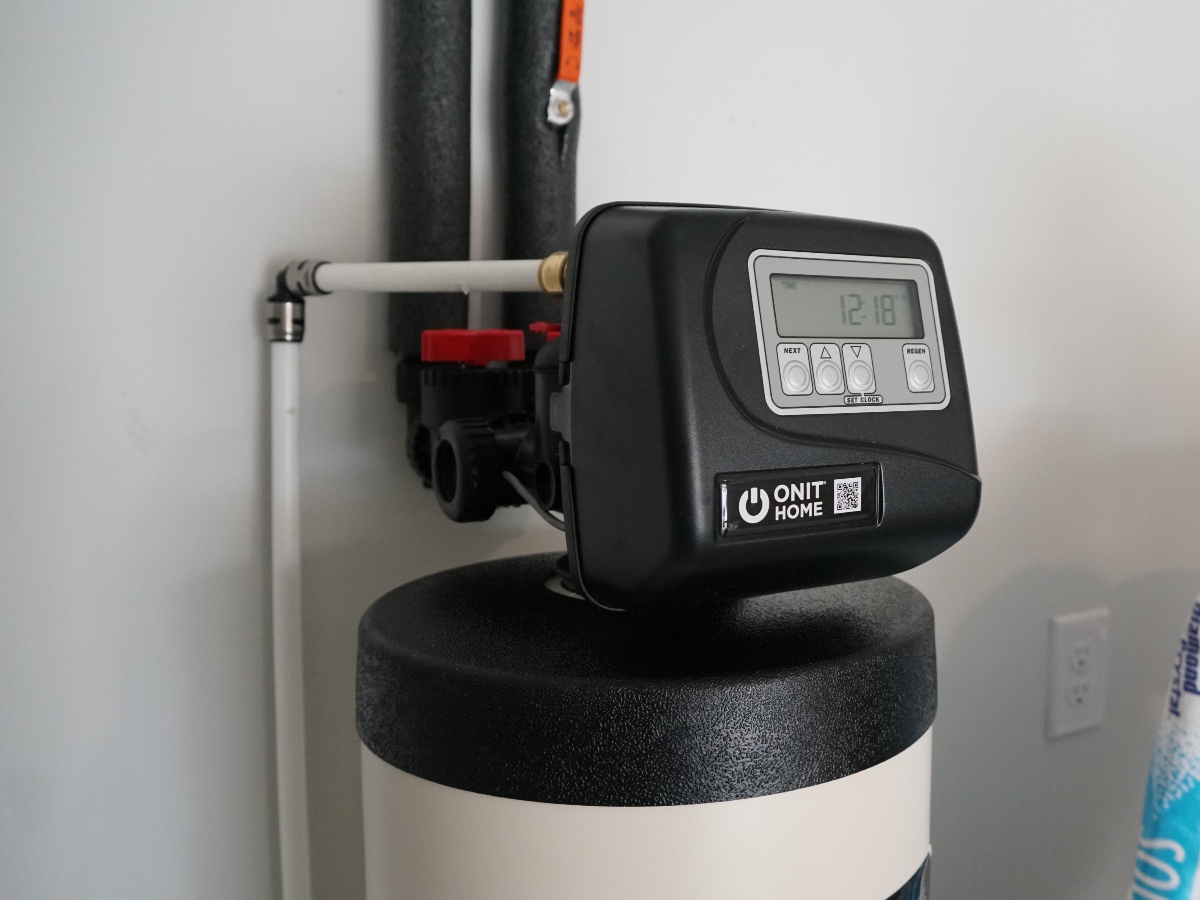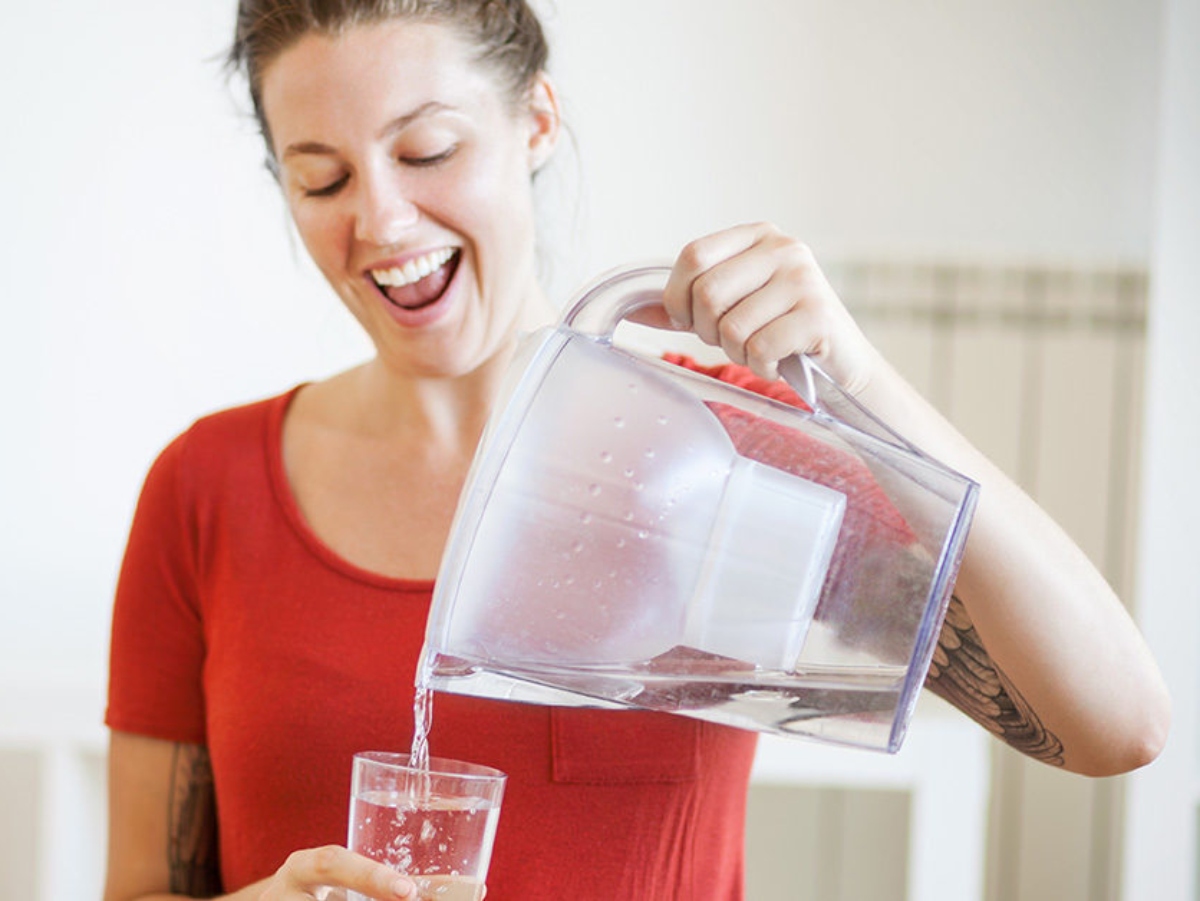Water is the most vital necessity for life. But we also know that tap water is not always the cleanest. That’s where water filters come in. When it comes to water filtration, there are a lot of options on the market. One popular option is a Brita filter. But, with all the fanbase, how does a Brita filter work? Does it filter my water?
Americans invest billions in water treatment systems since they have concerns about their water quality. Water filters are necessary to purify the water you drink, cook with, and wash your clothes. This blog post will explore how a Brita filter works and whether it is an effective water filtration method.
How Does a Brita Filter Work?
To answer the question of “How does a Brita filter work” let’s look at all Brita filters to understand how each one works.
A Brita filter uses an adsorption process, which is when impurities are attracted to and bound to the surface of the filter.
Brita Standard Filters
Brita standard filters for pitchers and dispensers have an inbuilt mesh screen where the water passes first to remove black flecks.
Next, they use coconut-activated carbon, a type of carbon that has been treated to make it more porous. This allows the filter to adsorb more impurities than a non-activated carbon filter. It also uses ion exchange resin, reducing mercury, copper, lead, and cadmium.
Brita Longlast+ Filter
Longlast+ Filter is considered more effective in reducing contaminants than the standard filter. It uses patented pleated media and proprietary active carbon. These filters remove 99% of lead and other pollutants, such as asbestos and cadmium. They are also longer lasting than standard filters.
Their stream, bottle, and faucet filters use the same technology as the standard filters.

Does It Filter Your Water?
The Brita filter is designed to reduce common impurities in water, such as chlorine, lead, and sediment. It does not, however, remove all impurities from water. For example, it will not remove nitrates, dissolved minerals, viruses, or bacteria. According to the CDC, no filter can eliminate all pollutants. So it would be best to choose a filter depending on your needs.
The only thing that Brita filters work to remove perfectly is the chlorine taste and odor. However, the Brita Longlast+ Filter is better than its other filters because of its technology, as it’s rated the best for reducing 99% of lead. The Environmental Protection Agency (EPA) has set the maximum contaminant level goal for information at zero in drinking water. This is because lead exposure can harm human health even at low levels. According to the information available, it’s unclear what their filters reduce or remove as they have generalized this crucial information.
So, are Brita filters safe? Whether they are safe depends on what you want to filter. For example, if you’re looking to filter microorganisms such as E. Coli and Giardia, Brita does not work on these. However, it’s good to note that their filters are certified by the National Sanitation Foundation (NSF). According to Brita, their systems are examined following NSF/ANSI 42 and 53 to reduce aesthetic impurities and contaminants with health effects. Furthermore, Brita systems are certified by the Water Quality Association (WQA), meaning their products meet WQA standards.
What Does Brita Filter Reduce?
Since Brita has different filters, what they reduce will depend on the filter you select.
Pitcher and Dispenser Filters
These filters are categorized into two:
- Standard filters: Reduces chlorine (taste & odor), mercury, copper, zinc, and cadmium.
- Longlast+ filters: They work to reduce chlorine (taste & odor), lead, mercury cadmium, benzine, asbestos, and particulates (Class 1).
Stream Filters
They work to reduce chlorine (taste & odor), 1, 2, 4 – trichlorobenzene, and particulate (VI).
Bottle Filters
Bottle filters reduce chlorine and particulate (VI) only.
Faucet Filters
These filters reduce lead, benzine, asbestos, particulate (I),1, 2, and 4 -trichlorobenzene. It also reduces select pharmaceuticals, pesticides/herbicides, TTHMs, Atrazine, and other contaminants found on their datasheet.

How Long Does Brita Filter Last?
Since Bita filters use the adsorption method to trap and hold the contaminants, Brita recommends regular filter replacement to ensure good water quality. In addition, the longevity of Brita filters depends on their type. So if you’re wondering how does a brita filter work and how long does it last, we have you covered.
- Standard, stream, and bottle filters: After every 40 gallons or around two months.
- Longlast+ filter: Replace after every 120 gallons or about six months.
- Faucet filters: Replace the filter every 100 gallons or approximately every four months.
Brita recommends replacing the filter more often if you have hard water. The filter comes with an inbuilt indicator or smart light to remind you when to replace it. It’s worth noting that Brita filters are susceptible to mold, so it’s good to rinse them in warm water.
How to Choose the Best Filters?
With so many options, knowing which one is the best for your needs can be tricky. So, if you’re looking for a water filter, there are a few critical questions you need to ask yourself.
What’s in Your Water?
Typically, there are three sources of water; public system, wells, and rain. Water from these sources may contain different contaminants. This makes it necessary to understand the water quality to address your needs. For example, rainwater may seem clean but can contain harmful substances such as lead.
That’s why it is important not to judge your water by its aesthetics; ensure you test it first to know the type of filter you’ll need.
What Method Does the Filter Use?
After understanding your water quality and knowing why you need a filter, it becomes easier to decide the type of filter you want. Here are the most common filtration methods:
- Activated carbon: They use the adsorption method to remove contaminants. These filters are best for removing the chlorine taste and odor. Also, they can remove pollutants such as lead, mercury, asbestos, and other VOC. It’s important to note that carbon filters do not remove inorganic contaminants, such as arsenic and hexavalent chromium. What this filter removes or depends on your chosen brand, so be careful to read the specifications.
- Reverse osmosis: Reverse osmosis removes impurities from water by using pressure to force water molecules through a semipermeable membrane. On top of improving taste and eliminating odor, reverse osmosis removes many contaminants, including microorganisms and inorganic pollutants. Unfortunately, they do not eliminate volatile organic compounds (VOCs) unless combined with carbon filters.
- Ultraviolet (UV) light method: UV light filters use ultraviolet light to kill bacteria and viruses such as E. Coli, salmonella, and coliform.
- Gravity filters: They rely on gravity to force water through a filter. They work without electricity and are low-maintenance filters. They can remove organic, heavy metals, and microorganisms depending on the filter specifications.
What’s Your Budget?
The market is full of simple to sophisticated filters, meaning you should choose depending on your budget. When selecting one, also consider installation and maintenance costs.

The Best Water Filtration System?
Are you tired of water systems that come at a low cost but provide minimum functionality? Unfortunately, in the end, most of these systems are more expensive. Right? Well, the best filter should meet your needs, including removing virtually any water pollutant. You can achieve this by installing a whole home water filtration system.
With this system, you can have peace of mind since you know you always have good water quality. For instance, you won’t have to worry when you see your child holding a glass of water since you know your home’s water is safe. In addition, a whole home water filtration system gives your appliances and plumbing a long-lasting life, saving you money. On top of all this, it helps protect your family against health risks that may come with contaminated water.
Remember to test your water before choosing a home’s filtration system. Also, ensure you test again after installation to check if your problem is solved. Finally, if you’re a well owner, test your water at least yearly or in case you notice something wrong with your water.
Improve Your Water Quality with a Whole Home Water Filtration System
How does a Brita filter work? Brita filter uses coconut-activated carbon to remove contaminants from the water. But does it filter your water? This depends on what you’re filtering. The Brita filter is an excellent choice if you want to enhance the taste of your water or remove odor. Otherwise, it’s not among the best in the market if you want to remove contaminants. For example, their filters do not remove microorganisms and inorganic substances. This is where the whole home filtration comes in. The perfect filtration system will improve water quality, keeping your appliances, plumbing, and your family safe and healthy.
If you’re thinking of a whole home water filtration system, ONIT Home promises you good water quality at an affordable price. Learn how you can switch and save big when you get a home filtration system!
Call us now at 1-833-433-0331 or visit us online for more information. We’re ONIT!



